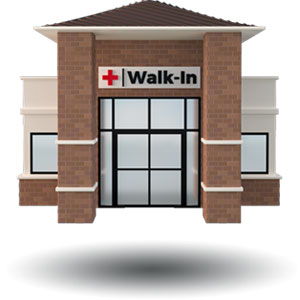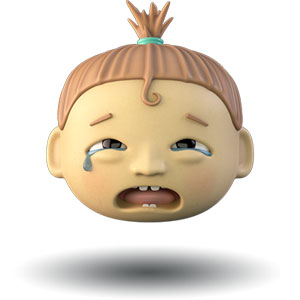Navigating your child's healthcare can be hard, but it doesn’t have to be. At Edward-Elmhurst Health, we created this resources page to help parents find the answers they need.
We have several tools to help, like our Ask Eleanor symptom checker and options for care that can be used in conjunction with your doctor’s office. Also, take a look at our list of common pediatric issues below, and how we can help.
Whether your child is dealing with an illness or injury, at Edward-Elmhurst Health, we’re here to help your child feel better and live life to the fullest. Our team has spent years training for and doing one thing — caring for kids. We provide expert, comprehensive pediatric care based on your child’s individual needs.
Here are some common pediatric issues and how we can help.
Read our handout for acetaminophen (e.g., Tylenol) and ibuprofen (e.g., Advil, Motrin) medication dosing information for children.
Asthma signs and symptoms vary from child to child, and may get worse or better over time. Some symptoms of pediatric asthma include:
- Wheezing
- Frequent, intermittent coughing
- Shortness of breath, rapid or labored breathing
- Chest tightness, congestion or pain
- Fatigue
- Difficulty sleeping
Some early warning signs that your child may be at risk for developing asthma may include: eczema starting in the early months, frequent lower respiratory symptoms in the first year, and a family history of asthma.
How we can help
If you know or suspect your child has asthma, our pediatric experts — including board-certified pediatric allergists and pulmonologists — will partner with you to get the disease under control so your child can live a normal, active life.
We’ll begin with a thorough evaluation and assessment to get a detailed description of your child’s symptoms and health. Then, we’ll work with you to develop your child’s personalized asthma treatment plan. The plan will track your child’s level of asthma control and help prevent and treat asthma attacks. As time goes on, we’ll carefully monitor your child to determine how well the plan is working and make any adjustments as needed.
Every child has different and specific asthma triggers. We’ll help identify what makes your child’s asthma worse, and work with you to reduce asthma triggers. We’ll also educate you on how to identify signs of an asthma attack and the steps to take if it occurs.
If it's after-hours, our walk-in locations may be an option. If it's severe, seek pediatric emergency care.
Read our blog: Know the signs of childhood asthma
A concussion is a brain injury that occurs when the head is struck or suddenly jarred. As a parent, it’s important to be aware of how to prevent concussions or minimize the impact of a concussion if it does happen. Most importantly, never ignore a head injury, no matter how minor. Call your doctor for advice.
The symptoms of a concussion range from subtle to obvious, and symptoms may not occur until several hours after the episode. Concussion symptoms can include any of the following:
- Headache
- Amnesia
- Light-headedness
- Balance problems, dizziness
- Nausea, vomiting
- Blurry vision
- Depression
- Sensitivity to noise and light
- Confusion
- Trouble concentrating
- Changes in behavior (agitation, grogginess, disorientation)
1 in 10 people will lose consciousness with a concussion. Anyone with the following symptoms after a head injury should seek emergency medical care: loss of consciousness, repeated vomiting, lack of coordination, seizures, or any symptoms that worsen over time (like increasing headache, nausea or dizziness).
How we can help
If you know or suspect your child has a concussion, our pediatric experts will partner with you to help your child recover. Here, you have access to specialists in pediatric concussions, including board-certified pediatric neurologists and pediatric sports medicine physicians.
At our pediatric concussion clinic, we’ll begin with a thorough assessment to determine if your child has a concussion. A diagnosis often consists of a physical exam and questionnaires measuring your child’s symptoms. The sports medicine clinic offers athletes pre-participation ImPACT testing; these tests can help to measure the severity of a concussion and track recovery should your child become injured.
If your child has a concussion, we’ll work with you to develop a personalized recovery plan. The plan will likely consist of an individualized prescription for mental and physical rest.
If it's after-hours, our walk-in locations may be an option. If it's severe, seek pediatric emergency care.
Read our blog: What every parent should know about childhood concussions
People with COVID-19 have had a wide range of symptoms, which may appear 2-14 days after exposure to the virus. Possible symptoms of COVID-19 include:
- Fever or chills
- Cough
- Shortness of breath or difficulty breathing
- Fatigue
- Muscle or body aches
- Headache
- New loss of taste or smell
- Sore throat
- Congestion or runny nose
- Nausea or vomiting
- Diarrhea
If your child has COVID-19 symptoms, we offer screening options for COVID-19, plus Video Visits and E-Visits so you can get advice from the comfort of home.
Visit our COVID-19 information center to learn more about COVID-19 screening, testing, vaccination, supportive resources and more.
Most doctors define a fever as a temperature of 100.4° F or higher. Normal body temperature is typically 98.6° F.
If you are concerned about your child’s temperature, call the doctor, especially if you notice any of the following:
- Your baby is younger than 3 months old and develops a fever.
- Your baby’s temperature drops below 97.7° F rectally.
- Your child’s fever lasts more than a few days.
- Your child’s fever is higher than 104° F.
- Your child’s fever does not come down with fever reducers.
- Your child is not acting like themselves, is difficult to arouse or is not taking in enough liquids or urinating enough.
- Your child was recently immunized and has a fever for more than two days.
If it's after-hours, our walk-in locations may be an option. If it's an emergency, seek pediatric emergency care.
Read our blog: When to take your child to the ER
Once you have a baby, many new parents have questions about what's normal and how to care for their newborn.
Read our related blogs:
Pinkeye (conjunctivitis) is the inflammation of the thin tissue covering the white part of the eye and the inside of the eyelids. Symptoms of pink eye may include eyes that are red/pink, itchy, watery, crusty or have yellow/green discharge. Pink eye may be caused by bacteria, viruses or allergies. It may be treated with eye drops or ointment, depending on the cause.
If you suspect your child has pink eye, call the doctor's office to learn next steps. A Video Visit may be an option. If it's after-hours, our walk-in locations treat pink eye as well.
Children get stomachaches for a variety of reasons. Abdominal pain can be caused by overeating, gas, constipation, food intolerance, food poisoning, urinary tract infections (UTIs), appendicitis, strep throat, emotional upset, and many other factors.
If you are concerned about your child's stomach issues, contact the doctor's office. A Video Visit may also be an option. If it's after-hours, our walk-in locations may be an option. If it's severe, seek pediatric emergency care.
Read our related blogs:
In addition to our pediatrician and family medicine physician offices, we also offer other options for your child’s care if it's after-hours and/or depending on the situation.

Walk-in care: Is your child dealing with cold/flu symptoms? A minor burn or break? We offer same-day walk-in care with no appointment needed, seven days a week at our Walk-In Clinic locations. Some of our locations offer lab services, X-ray and advanced imaging. Find a walk-in care location near you. Even better, let us know you’re on your way here or on the mobile app, to save your spot.

Pediatric and kid-friendly emergency care: In an emergency, we can help! Each of our 24/7 Emergency Departments in Elmhurst and Naperville, and a freestanding emergency center in Plainfield, provide specialized care for our youngest patients. Learn more about our pediatric emergency care.